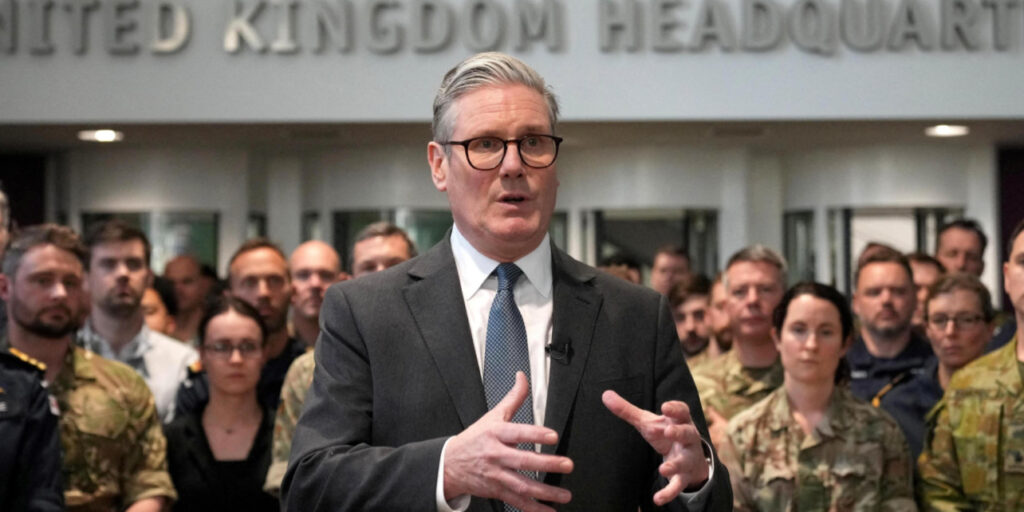Keir Starmer’s proposal for an international force to aid a ceasefire in Ukraine has been criticised as “a posture and a pose” by Donald Trump’s special envoy, Steve Witkoff.
During an interview with Tucker Carlson, a pro-Trump journalist, Witkoff dismissed the idea as overly simplistic, likening it to an unrealistic desire to emulate Winston Churchill by the UK’s prime minister and other European leaders.
Witkoff, who recently met with Vladimir Putin, spoke highly of the Russian president, describing him as “super smart” and praising his straightforwardness.
He revealed that Putin had expressed his prayers for Trump following an assassination attempt last year and had even commissioned a portrait of the former US president as a gift, which Trump greatly appreciated.
The interview saw Witkoff echoing several Russian narratives, questioning the legitimacy of Ukraine as a country, and challenging the global recognition of occupied Ukrainian territories as Russian.
Despite leading US ceasefire talks with Russia and Ukraine, Witkoff struggled to name the five Ukrainian regions either annexed or partially occupied by Russian forces, merely mentioning Donbas and Crimea among others.
Witkoff’s statements included several inaccuracies or disputed claims, such as the situation of Ukrainian troops in Kursk and the results of referendums in occupied Ukrainian regions, which have been widely discredited. He also incorrectly linked the Russian-speaking regions in Ukraine with support for Russian governance.
Upcoming talks between the US, Ukraine, and Russia are scheduled to take place in Saudi Arabia, aimed at negotiating a ceasefire.
This comes amidst ongoing conflict, evidenced by recent Russian drone attacks on Kiev and Zaporizhzhia, which resulted in civilian casualties.
Witkoff also reiterated Kremlin perspectives on the invasion, suggesting that the annexation of Ukrainian territories was justified by historical claims and the perceived threats from an expanding NATO.
Despite these contentious views, he expressed hope for future US-Russian cooperation on various fronts, including energy and technology.
Discussing Starmer’s plan further, Witkoff argued that the concept of a military coalition to secure Ukraine post-war was naive and simplistic, pointing out the existing protection offered by NATO against any potential Russian advancement across Europe.
He also hinted at imminent progress towards a ceasefire in the Black Sea region and a broader 30-day ceasefire.


